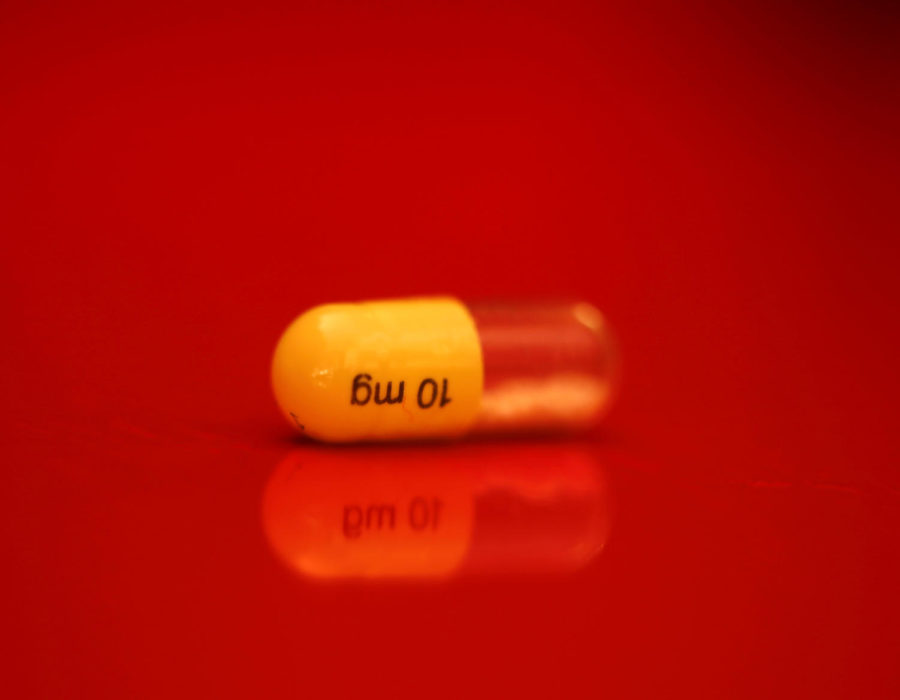Schafer: I’m hyperfocusing on… the gamble
July 4, 2021
Editor’s Note: This column contains information about pharmaceutical drugs.
This column is a part of a series called “I’m hyperfocusing on…”.
As far as finding medication for my brain goes, I can’t help but feel pretty lucky. There’s even a term for the process that’s been adopted by many communities. Pharmaceutical roulette refers to the process of taking a risk with a medication, dosage and frequency in the hopes you’ll find your holy grail of drugs to better function. For some, this process can take several years.
Although I came to the table late, I didn’t spend much time playing the game. I started on one medication and dosage, which I rode out for a while. I didn’t notice much of a difference, and neither did the people around me. After a while, I tried a different dosage. That’s when change became noticeable. I spent a weekend at my partner’s house with his family, and every single person there thought I hated them that weekend. I was more irritable, emotional and almost constantly overstimulated. Despite all this, I hadn’t seen any positive change by the time I finished the refill.
I was prescribed a new medication, one that would target different receptors in my brain in hopes of a different response than the prior medication. Almost immediately, I saw a difference. My cuticles healed almost overnight from all the picking I’d been doing before. I could go in to work in the morning and not only figure out a plan for the day with the kiddos that I nanny, I could stick to that plan and accomplish everything we needed to with extra time at the end of each day. I even have a class with lectures in the morning that I’ve been able to attend and take notes in.
The unfortunate thing about this medication is how quickly it passes from my system, even as an extended release form. I work for 10 hours each day, and when I come home, I still have to take care of my animals and do homework. I can feel the moment that the meds are worn off, about seven hours after taking them. For me, this has meant that for the last few hours of my day at work, I’m less aware of how much time passes and I often find myself understimulated. By the time I get home, I struggle to finish what I need to do on time and fight to work through executive dysfunction until the last possible moment.
I’ve seen the most quantifiable difference in the class that I work on in the early morning compared to the class that I work on in the evening. In my morning class, I have pages of notes that I’ve taken and studied from. I’ve met one on one with the professor in office hours, and I’ve participated in lectures without losing focus. In my other course, I can’t maintain focus long enough to last a full lecture. I don’t even have a flashcard to show for notes that I’ve taken. In my recorded exams, I’m constantly moving, talking to myself and looking all over the place, all of which are not compliant with the explicitly written rules for taking exams in that class.
I consider myself to be quite fortunate in that I only tried one medication without success, and I’ve even found a dosage that works for my brain. Now, I just need to figure out the ideal frequency for my body and brain. I’ve recently been prescribed a new frequency at which to take my medication, in the hopes of gaining a few more hours of executive function during my day.
I’d like to point out that medication can’t solve all the problems in our lives without additional efforts. I’ve been researching why my brain works the way it does in order to work with it instead of against it. TikTok is also an incredible resource because it allows professionals and specialists from all over the world to reach audiences they wouldn’t otherwise be able to. While taking a pill didn’t magically solve my problems, it did flip a switch in my brain that, paired with behavioral strategies, does make a big difference.
Every brain is different. While one drug works for some, it might not do anything for others. Calculating the proper dosage is more complex than plugging body weight into a formula. The rate of drug metabolism varies person to person. All of these factors makes finding the right medication more of a gamble than a guaranteed win. Don’t feel like you need to make that gamble unless you think it’s best for you.

















